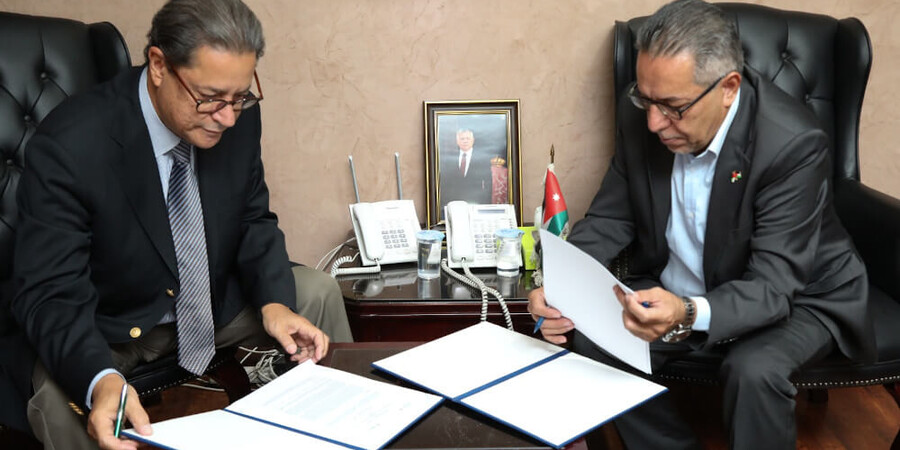ICARDA and Jordan Partner to Advance Cooperation on Water and Climate Change Adaptation
ICARDA, represented by Director General Aly Abousabaa, and Jordan Ministry of Water and Irrigation (MWI), represented by Dr. Jihad Al-Mahamid, Secretary-General of MWI, have signed a Memorandum of Understanding (MoU) to intensify cooperation on water and agricultural resource management and strengthen Jordan’s capacity to adapt to drought and climate change challenges. In Jordan, the world’s second most water-stressed country, limited rainfall

ICARDA and Jordan Partner to Advance Cooperation on Water and Climate Change Adaptation
ICARDA, represented by Director General Aly Abousabaa, and Jordan Ministry of Water and Irrigation (MWI), represented by Dr. Jihad Al-Mahamid, Secretary-General of MWI, have signed a Memorandum of Understanding (MoU) to intensify cooperation on water and agricultural resource management and strengthen Jordan’s capacity to adapt to drought and climate change challenges.
In Jordan, the world’s second most water-stressed country, limited rainfall and naturally scarce water resources place growing pressure on the balance between food production, sustainable farming, and efficient water management. This balance is further strained by demographic growth, refugee influxes, and the effects of climate change.
These challenges require a concerted, collaborative effort backed by evidence-based strategies. This agreement aims to foster collaborative research in agricultural water use and irrigation systems and strengthen human capacity to enable Jordan to optimize water productivity and enhance food security.

“This agreement represents the next vital chapter in our shared commitment to strengthen Jordan’s water security and agricultural resource optimization. As a key partner, ICARDA offers specialized expertise in advancing sustainable dryland agriculture and water resource management, which aligns perfectly with our strategic national needs. We wholeheartedly endorse this partnership and express our gratitude for the continued scientific cooperation that will bring essential, sustainable innovations to our farmers and communities.” – Dr. Jihad Al-Mahamid, Secretary General of MWI.
ICARDA’s collaboration with Jordan spans almost 50 years, dating back to their first agreement in 1977. This new MoU deepens that legacy, reaffirming a mutual commitment to confronting water scarcity and climate pressures through joint research, technological innovation, and capacity development.
Under this MoU, ICARDA and MWI will collaborate on developing and improving rainfed and conservation agriculture systems, raising water-use efficiency and enhancing water utility performance, as well as advancing water management technologies and digital innovations such as geoinformatics and big data. The partnership will also focus on conducting drought studies, rainwater harvesting, and managed aquifer recharge (MAR), promoting climate change adaptation strategies that integrate gender and youth perspectives. In addition to strengthening human capacity by providing training, facilitating joint workshops, and promoting research exchange programs.

